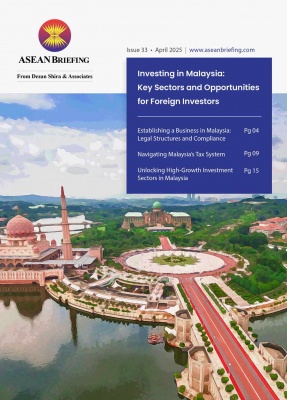
Our collection of resources based on what we have learned on the ground
Establishing an Entity in India – What Foreign Investors Need to Know
Q&AIndia is an attractive destination for foreign investors due to its large consumer market, low labour costs, and rising global competitiveness.
However, foreign companies willing to invest in India may find it difficult to understand India’s complex regulatory environment and selecting the most appropriate entity structure for their business model. Selecting the right entity structure helps the company establish itself as a strong player in the Indian market and reap financial gains.
When setting up in India, foreign companies should choose an entity structure that best caters to their business scope and investment commitments.
In this month’s Q&A session, International Business Advisory Associate Radhika Gupta answered some frequently asked asked questions from foreign investors regarding establishing an entity in India.
What are the different entity types available for foreign companies planning to establish a presence in India?
Various entity options are available for foreign investors planning to setup their businesses in India. These include wholly owned subsidiaries, limited liability partnerships (LLP), branch offices, liaison offices, and project offices.
Each entity type has its advantages and disadvantages. Depending on the nature of work and the sector in which company intends to invest, a suitable entity type should be chosen.
We therefore advice companies to conduct a thorough study on various entry models before investing.
- Liaison office
Foreign companies may open a liaison office in India if they wish to expand their businesses and interact with Indian customers. Also known as a representative office, it can only act as a channel of communication between the foreign parent company and India office. An LO not allowed to conduct any revenue generating business activity in India. Since it cannot engage in commercial, trading, or industrial activities, their operating cost must be sustained by inward remittances received from their foreign parent company.
- Branch office
Foreign companies can set up branch offices that will be responsible for carrying out branch activity for its businesses. To establish these offices, it is necessary to follow the provisions laid down by the RBI and the Companies Act, 2013. Foreign companies can generate revenue from the Indian branch office in accordance with activities allowed by the Reserve Bank of India. A branch office requires approval from the RBI before commencement of any operations.
- Project office
A project office can be established if a foreign company has received a contract from an Indian company to execute a project in India. It is set up for a limited period. For example, if a foreign company has received a contract to execute an infrastructure or installation project in India through project offices duly registered with the RBI and the Registrar of Companies (ROC).
The difference between a project office and a liaison office is that project offices can carry out commercial activities in relation to the project awarded but liaison projects cannot carry out commercial activities.
- Limited liability partnership (LLP)
A limited liability partnership (LLP) is a hybrid between partnership firms and a company (private or public). LLP has limited liability for its partners like a company, and it receives tax benefits like a partnership firm. Under this structure, the liability of the partner is limited to their agreed contribution, and it provides flexibility without the imposition of detailed legal requirements.
- Wholly owned subsidiary (WOS)
A wholly owned subsidiary (WOS) operates as an independent legal entity whose 100 percent common stock is owned by another company, the parent company. In other words, the foreign company holds 100 percent of the subsidiary’s total share capital. A WOS may either be a part of the same industry as its parent company or a part of an entirely different industry.
What is the preferred entity structure for foreign companies setting up in India? Why?
The entity structure preferred by a foreign company depends on the goals and activities proposed to be carried out in India by that foreign company.
Companies should understand the limitations and advantages of each entity type before selecting a company type for market entry into India.
For instance, if the foreign enterprise wants to conduct commercial activity in India, then it needs to explore a branch office or a private limited company. The foreign entity should consider the sector, their business type, controlling interest, and mode of business funding before finalizing an entity structure.
What are the most prominent investment destinations in India? Why?
Each state in the country has a unique selling point; however, at present, the states of Gujarat, Maharashtra, Karnataka, Andhra Pradesh, Tamil Nadu, and Delhi are among the top preferences for investors.
Each state provides unique opportunities for potential foreign entities looking to establish in India. Thus, it is advisable that foreign companies decide on a location based on the industry of the foreign entity, network of trade and supply, land and labour costs, logistics, and compliance requirements after conducting a thorough due diligence and location analysis.
What are the sectors in which foreign investment is not allowed?
As per the current FDI policy, there are a handful of sectors in which foreign investment is prohibited. These are:
- Gambling and Betting
- Lottery Business including Government/private lottery, online lotteries, etc.
- Nidhi Company
- Chit Funds
- Real Estate Business or Construction of farmhouses
- Trading in Transferable Development Rights
- Manufacturing of cigars, cheroots, cigarillos and cigarettes, of tobacco or of tobacco substitutes
- Sectors not open to private investment such as atomic energy.
< BACK TO LIBRARY
Subscribe to receive latest insights directly to your inbox
Subscribe NowOur Clients
Discover our esteemed global clients across diverse sectors. We believe in providing our clients with exceptional service and a commitment to being their partner for growth in Asia.
See what our clients say about us































